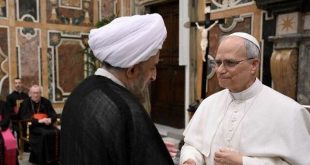In this paper the writer will discuss the relative date of two important versions of the Karbala story related by Ṭabarī: one, relatively short and lacking in detail, is ascribed to Imam al-Bāqir (d. 114/732); the other, much longer and more detailed, is compiled by Abū Mikhnaf (d. 157/774).
Despite its importance for Shīʿites and other Muslims, the story of the death of Ḥusayn b. ʿAlī at Karbala in 61/680 is clearly under-researched. So, for example, except for Borrut (2015) hardly any of the previous studies made have compared different versions of the story and attempted to set a relative date to them. Such a study is necessary in order to map the development of the Karbalāʾ story and the image of Ḥusayn in the emergence of Shīʿite ideology. In this paper I will discuss the relative date of two important versions of the Karbala story related by Ṭabarī: one, relatively short and lacking in detail, is ascribed to Imam al-Bāqir (d. 114/732); the other, much longer and more detailed, is compiled by Abū Mikhnaf (d. 157/774). Studies in other fields, such as “historical Jesus-studies,” have shown that brevity and lack of details is not a certain criterion for old age of a version of a story; in order to ascertain the relative age of two versions, detailed studies have to be made and conclusions drawn from case to case. By comparing three passages in the two versions of the Karbalāʾ story: Ḥusayn’s encounter with al-Ḥurr; Ḥusayn’s attempt to negotiate with the enemy; and the killing of Ḥusayn’s baby boy, I hope to demonstrate that the version ascribed to al-Bāqir is indeed the older of the two, although its authorship cannot be established with certainty. I will also share some thoughts about the historicity of the events described in the three passages analyzed.
 Ijtihad Network Being Wise and Faithful Muslim in the Contemporary World
Ijtihad Network Being Wise and Faithful Muslim in the Contemporary World

